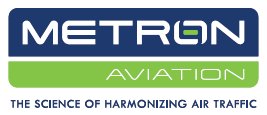Metron Aviation Continues Support of Advanced Environmental Tools for the FAA

Metron Aviation is pleased to announce the award of two task orders, through the Systems Engineering 2020 (SE-2020) Vehicle, by which Metron Aviation continues to support the development of advanced environmental tools for Federal Aviation Administration (FAA). The awarded projects are Aviation Environmental Design Tool (AEDT) Development and Support Work and Noise Integrated Routing System (NIRS), NIRS Screening Tool (NST) and Aviation Environmental Screening Tool (AEST) Support and Development.
In supporting the AEDT Program Office, Metron Aviation has built upon 15 years of experience culminating most recently in cost-effectively bringing the AEDT regional noise-analysis capability to fruition, for release 2a. For the evolution of the Aviation Environmental Screening Tool (AEST), Metron Aviation continues development and application of screening capabilities designed to streamline the environmental-assessment process associated with NextGen and other initiatives.
AEDT dynamically models aircraft performance to estimate fuel burn, emissions and noise impacts. Full flight gate-to-gate analyses are possible for studying sizes ranging from a single flight at an airport to scenarios at the regional, national and global levels. The evolution of AEST will support screening-level analysis of FAA actions to determine potential for environmental impact in a tool that extends and replaces the capabilities of the NIRS Screening Tool (NST) under the umbrella of AEDT integrated environmental-analysis capabilities. The new SE-2020 projects will continue Metron Aviation's support of the development of AEDT/AEST software, functional and integration testing, test reports and data, as well as core development documents.
From a global environmental-benefits perspective, the AEDT suite of capabilities will ultimately enable environmental analysis on a single, integrated platform that supports scalability for local, regional, national, and global analysis of noise, fuel burn and emissions, underpinning analysis and tradeoffs of future NextGen technologies, as well supporting integrated economic analysis of potential tradeoffs via the FAA's Aviation environmental Portfolio Management Tool (APMT). These capabilities are essential for development of sustainable aviation in the coming decades.
Dr. Terry Thompson, Vice President for Energy and Environment at Metron Aviation, stated that:
"We are extremely pleased to support FAA in both of these efforts. Aviation is entering an era in which environmental effects are becoming increasingly important locally, regionally and globally. We understand the importance of detailed, system-level analysis of these effects taking into account all of the factors that determine them: traffic levels, fleet composition, operational improvements, engine/airframe technologies and alternative fuels. We are well prepared to address the challenges in each of these areas as we move forward to improve the sustainability of aviation."
AEDT dynamically models aircraft performance to estimate fuel burn, emissions and noise impacts. Full flight gate-to-gate analyses are possible for studying sizes ranging from a single flight at an airport to scenarios at the regional, national and global levels. The evolution of AEST will support screening-level analysis of FAA actions to determine potential for environmental impact in a tool that extends and replaces the capabilities of the NIRS Screening Tool (NST) under the umbrella of AEDT integrated environmental-analysis capabilities. The new SE-2020 projects will continue Metron Aviation's support of the development of AEDT/AEST software, functional and integration testing, test reports and data, as well as core development documents.
From a global environmental-benefits perspective, the AEDT suite of capabilities will ultimately enable environmental analysis on a single, integrated platform that supports scalability for local, regional, national, and global analysis of noise, fuel burn and emissions, underpinning analysis and tradeoffs of future NextGen technologies, as well supporting integrated economic analysis of potential tradeoffs via the FAA's Aviation environmental Portfolio Management Tool (APMT). These capabilities are essential for development of sustainable aviation in the coming decades.
Dr. Terry Thompson, Vice President for Energy and Environment at Metron Aviation, stated that:
"We are extremely pleased to support FAA in both of these efforts. Aviation is entering an era in which environmental effects are becoming increasingly important locally, regionally and globally. We understand the importance of detailed, system-level analysis of these effects taking into account all of the factors that determine them: traffic levels, fleet composition, operational improvements, engine/airframe technologies and alternative fuels. We are well prepared to address the challenges in each of these areas as we move forward to improve the sustainability of aviation."





.png)



.jpg)

Comments
There are no comments yet for this item
Join the discussion